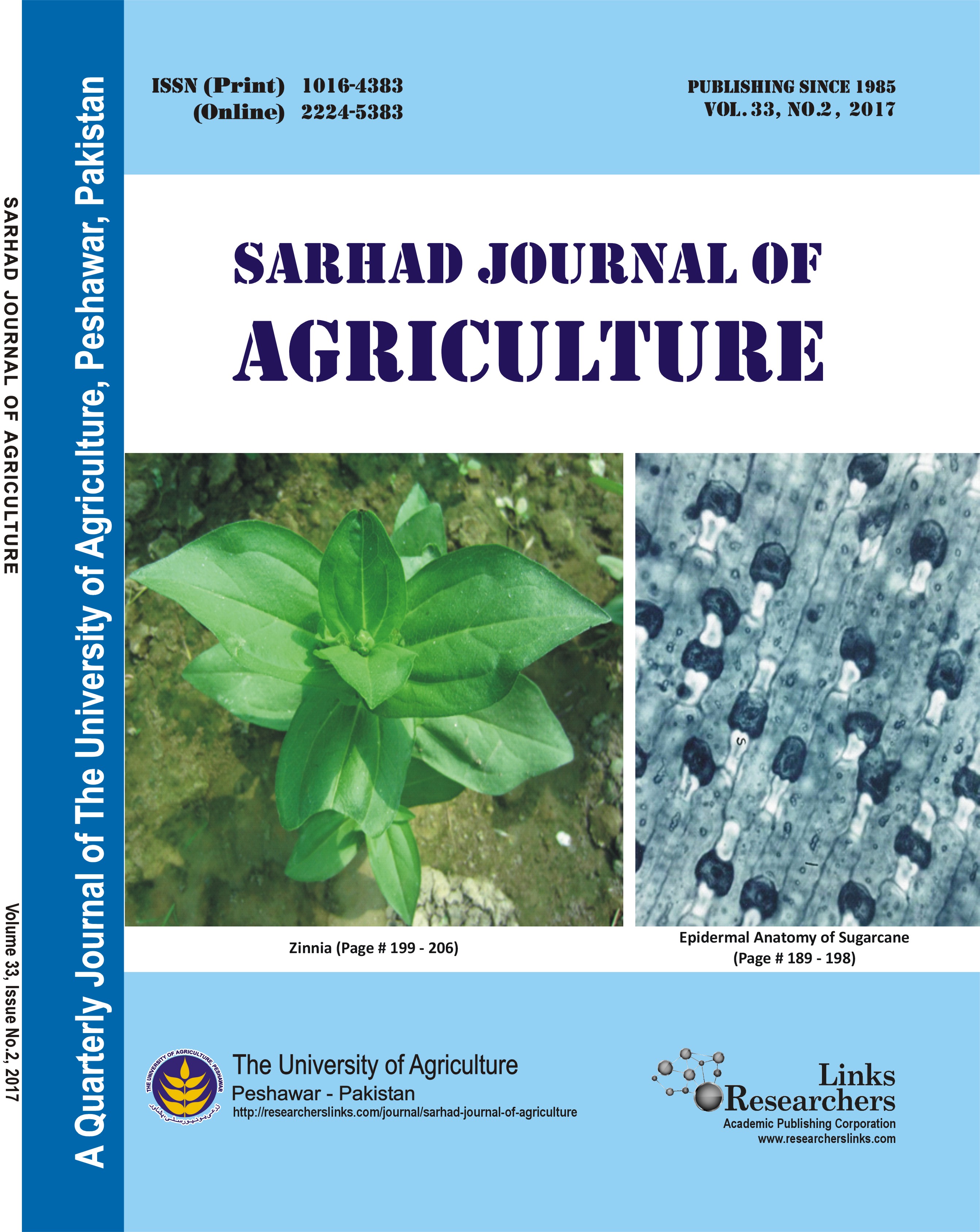Impact of Climate Change on the Confined Aquifers Resources and Factors Responsible for Decline and Vulnerability of Groundwater in District Karak
Impact of Climate Change on the Confined Aquifers Resources and Factors Responsible for Decline and Vulnerability of Groundwater in District Karak
Ahmad Noor and Malik Muhammad Shafi*
ABSTRACT
This study investigated the impact of climate change on the confined aquifer resources and discovers climate factors responsible for groundwater decline in district Karak, Khyber Pakhtunkhwa, Pakistan. The key objectives were comparing the community perception regarding groundwater recharge and discharge over the last decade and investigating the climate change impact on groundwater table. A total of 285 households with groundwater pumping facilities were selected for study within six villages; Kiridhand, Jangerizi Banda, Yaghi Musakan, Hassan Banda, Takht Nasrati and Garang. Data were collected through questionnaires, while secondary data was from different climate and weather reports. Binary Logistic model was used for analysis. The study discovered lack of surface water resources and ground water extraction satisfied the community needs and rainfall was only recharge method. Boreholes pumping technique was used mostly for irrigation. The Logit model investigated the impact of climate change was responsible for 73 percent variation in groundwater level. These climate factors included precipitation (Rainfall), temperature, humidity and delayed seasons. Rain patterns such as decrease in rainfalls with low frequencies showed positively significant impact on the groundwater level as climate factor and decline in rainfall showed significant positive effect. Groundwater was also highly significant and positively affected by the rising temperatures as the respective coefficient was 4.19 and p-value was 0.000. Delay in seasons showed significant and positive effect. The study recommended an approach of integrated water resource management to bring together relevant government departments, knowledge institutions, stakeholders and political leadership to an attractive option of climate change adaptation for groundwater resources preservation at district Karak.
To share on other social networks, click on any share button. What are these?







